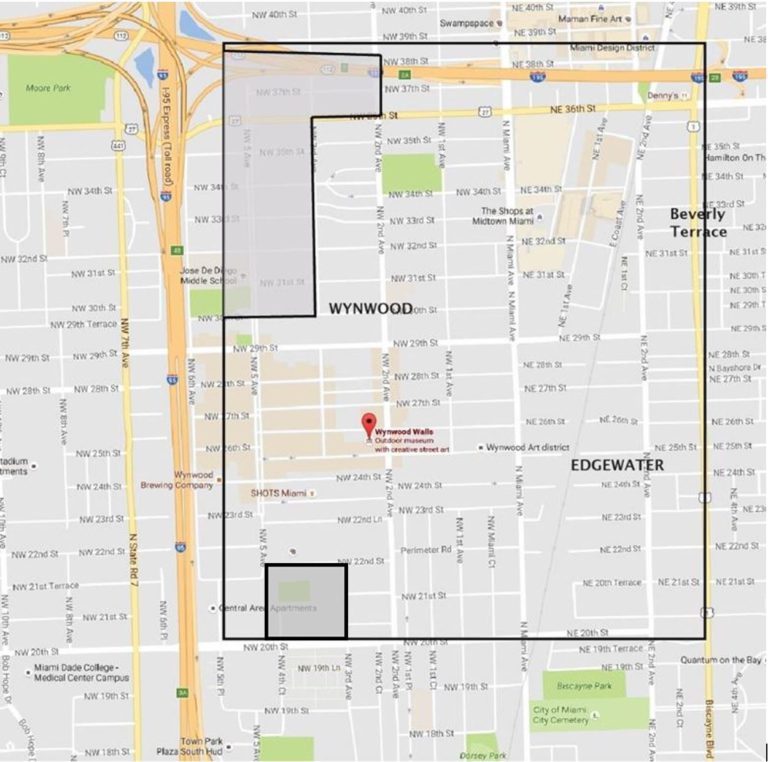Florida Governor Rick Scott announced today that following 45 days with no evidence of active Zika transmission, the entire Wynwood zone, which was originally about one square mile, has been lifted.
 Scott said, “When we announced Wynwood as the first place in our nation to have local transmission of the Zika virus, Wynwood was immediately sent into the national spotlight. Over the past few weeks, Floridians have worked together to prevent the spread of mosquitoes, take proper precautions to protect one another, and support local businesses in Wynwood. We saw the success of this hard work each time we announced a reduction of the zone in Wynwood, and we see it clearly today now that the entire Wynwood zone has been lifted. This would not have been possible without aggressive mosquito control measures, outreach to the community, education efforts and the vigilant actions of the residents and businesses in Wynwood.
Scott said, “When we announced Wynwood as the first place in our nation to have local transmission of the Zika virus, Wynwood was immediately sent into the national spotlight. Over the past few weeks, Floridians have worked together to prevent the spread of mosquitoes, take proper precautions to protect one another, and support local businesses in Wynwood. We saw the success of this hard work each time we announced a reduction of the zone in Wynwood, and we see it clearly today now that the entire Wynwood zone has been lifted. This would not have been possible without aggressive mosquito control measures, outreach to the community, education efforts and the vigilant actions of the residents and businesses in Wynwood.
“Now that the Wynwood zone has been lifted, we must all work together to help this incredible Florida community fully recover. On September 30th, we will be hosting ‘Dine Out Wynwood’ to celebrate and show our support for local businesses in this area. I encourage everyone to travel to Wynwood and join me in visiting the many great local restaurants and businesses. We must also all do our part to remain vigilant and keep the Wynwood zone lifted. Everyone must continue to take precautions by dumping standing water and wearing bug spray so we can protect pregnant women who are most at-risk for the Zika virus.”
The Centers for Disease Control and Prevention (CDC) announced today revised guidance (the older guidance called for pregnant women to avoid travel to the area) for the Wynwood-designated area that includes:
- Pregnant women and their partners living in or traveling to the area should follow steps to prevent mosquito bites.
- Pregnant women and partners of pregnant women who are concerned about potential Zika virus exposure may also consider postponing nonessential travel to all parts of Miami-Dade County.
- Women and men who lived in or traveled to the area should be aware this location was considered an area of active Zika virus transmission from June 15 to September 18, 2016. Pregnant women should talk to their doctor or other healthcare provider about getting tested for Zika; and people who have a pregnant sex partner should consistently and correctly use condoms to prevent passing Zika during sex or they should not have sex during the pregnancy.
- Women and men who do not have signs or symptoms of Zika and who traveled to the area from June 15 to September 18 should wait at least 8 weeks before trying to get pregnant.
- Men who had signs or symptoms of Zika or were diagnosed with Zika and who traveled to the area from June 15 to September 18 should wait at least 6 months before trying to get their partner pregnant.
In addition, all pregnant women in the United States should be evaluated for possible Zika virus exposure during each prenatal care visit. Each evaluation should include an assessment of signs and symptoms of Zika virus disease (acute onset of fever, rash, arthralgia, conjunctivitis) and their travel history, as well as their sexual partner’s potential exposure to Zika virus and history of any illness consistent with Zika virus disease to determine whether Zika virus testing is needed.
Related:
- Rabies: A comprehensive interview with Pamela Wilson
- Venezuela: Observatorio Venezolano de la Salud projects 350,000 malaria cases by years end
- Minnesota Legionnaires’: Hopkins case count rises, largest outbreak in state in decades
- England: Cleansing spray, piercings and Pseudomonas infections
- Anaheim: Mycobacterium infections prompt health department cease order


2 thoughts on “Florida lifts Wynwood ‘zone’ after being Zika free for 45 days”